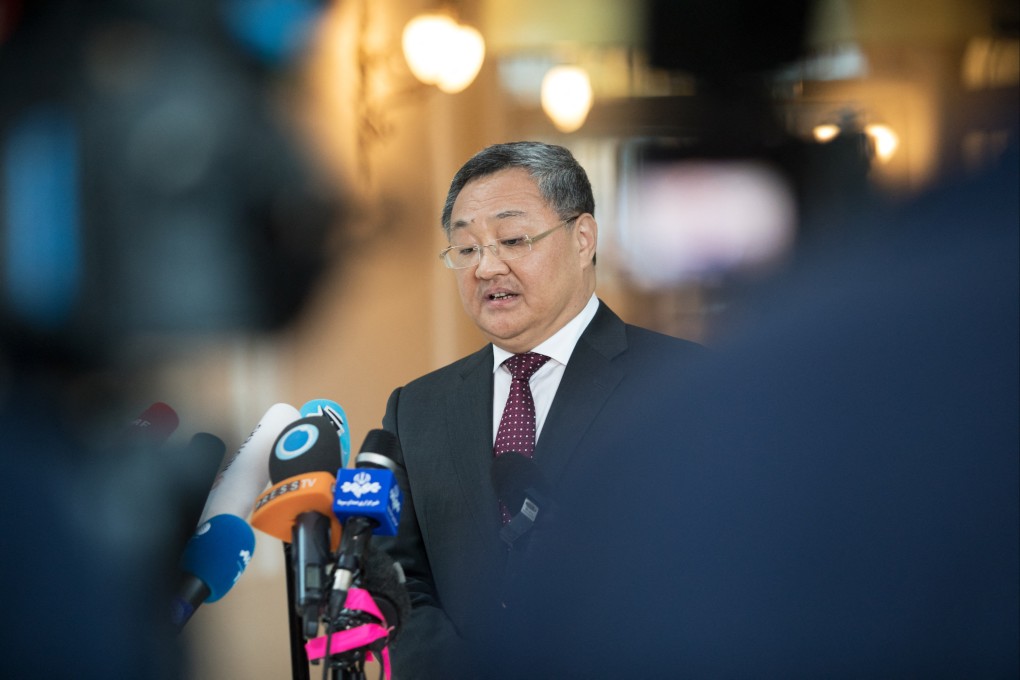Chinese envoy to EU denies committing to halt sanctions-busting shipments to Russia
- Beijing ‘did not commit [to] anything … that’s the bottom line’, Ambassador Fu Cong says
- EU sources say commitment on re-exports was expected after Brussels dropped five Chinese entities from sanction list

China has not committed to stopping its companies from helping Russian military buyers breach EU sanctions, its top envoy to the bloc said on Friday.
EU sources said they made that decision following a diplomatic commitment from Fu to exert pressure on the firms to stop re-exporting banned goods to the Russian war machine.
But the diplomat told the Post and two other media outlets in an interview in Brussels that “the Chinese government did not commit [to] anything … that’s the bottom line”.
“We understand the concerns of the EU in terms of trying to prevent the circumvention of the sanctions, meaning that some of the items from the European market might be re-exported to Russia and so … according to their view, that needs to be resolved,” Fu said. “We’ll see what happens in the future.”
